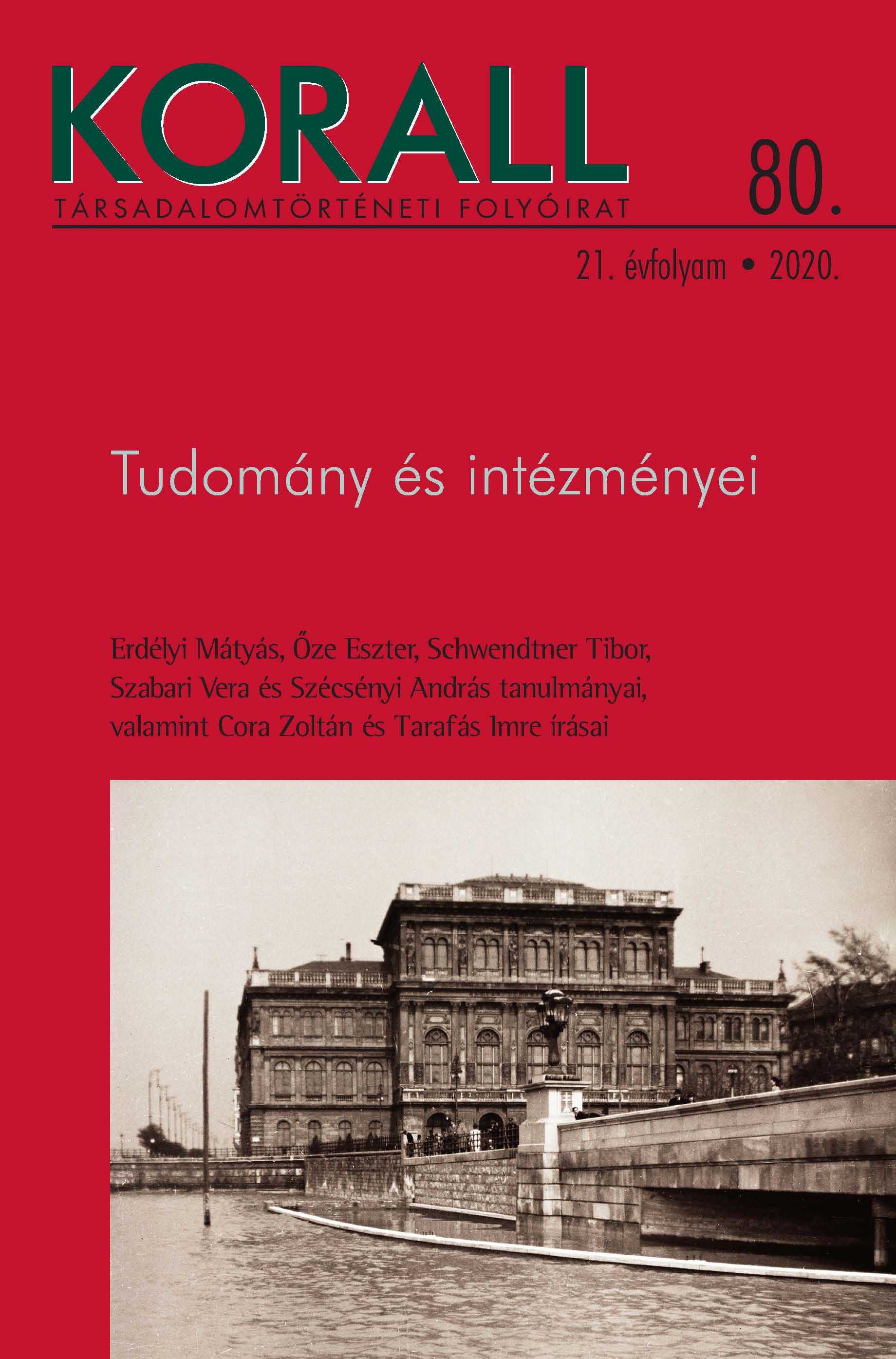Az 1960-es években intézményesülő magyar szociológia társadalmi és politikai környezete
The Social and Political Environment of Institutionalizing Hungarian Sociology in the 1960s
Author(s): Vera SzabariSubject(s): Cultural history, Social history, Post-War period (1950 - 1989)
Published by: KORALL Társadalomtörténeti Egyesület
Keywords: history of Hungarian sociology; first academic research group; Kádár Era; consolidation
Summary/Abstract: Throughout the history of Hungarian sociology, there have been many attempts to build a robust institutional network, and the most successful one, whose institutional framework remains definitive to this date, took place in the 1960s and 1970s. It was around this time when the first academic research group – later Research Institute for Sociology – was launched, followed by the first university departments, scholarly journals and learned societies. After the 1956 revolution, the institutionalization of sociology was tied to the Kádár Era consolidation in the 1960s, which undoubtedly carried the promise of increased independence of the subsystems of society, the depolitization of everyday life, and of satisfying the society’s need of consumerism and modernization. Such efforts in Hungary, as part of the Soviet Empire, were deeply impacted by global power alignment and legitimization struggles, which, from the 1950s onwards, increasingly shifted to the scientific domains of economy and technology. The study focuses on the antecedents, founding, and operation of the Sociology Research Unit at the Hungarian Academy of Sciences after 1963, then its eventual institutionalization in 1968. The aim of the study is to find out what role the contemporary reform efforts played in the process of institutionalization and the legitimization of sociology as a discipline. How was the professionalization of sociology viewed and by whom, what arguments helped or hampered the representatives of the discipline within academia and the political regime or from a social perspective in the broadest sense? The study also examines the ways in which the modernization ideology adopted by the state influenced the knowledge production of sociology: picking the questions to be debated and selecting the research methodologies as well as individual and institutional research strategies.
Journal: Korall - Társadalomtörténeti folyóirat
- Issue Year: 2020
- Issue No: 80
- Page Range: 79-100
- Page Count: 22
- Language: Hungarian

